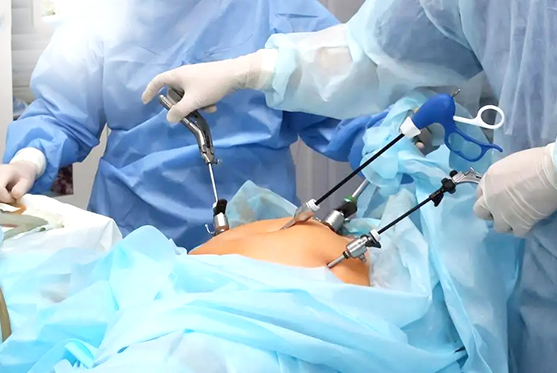
Laparoscopy, or keyhole surgery, is a minimally invasive procedure used to diagnose and treat fertility-related issues. Small abdominal incisions allow a laparoscope and instruments to access reproductive organs, enabling precise treatment without open surgery. It is commonly used for endometriosis, ovarian cysts, fibroids, tubal blockages, and adhesions to improve fertility outcomes.
Laparoscopy is generally safe, but risks include bleeding, infection, or injury to nearby organs. Some patients may experience discomfort from gas used during surgery, mild pain, or bruising at incision sites. Rare complications may involve anesthesia reactions, blood clots, or the need to convert to open surgery. Most patients recover quickly with proper care.